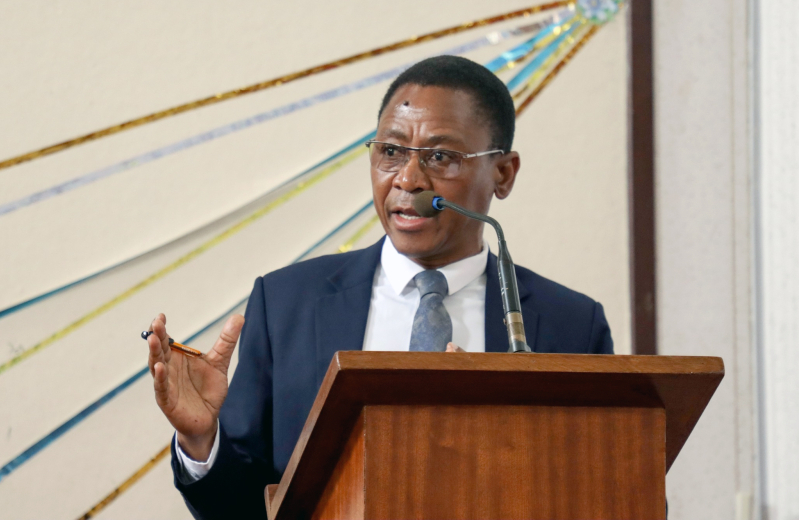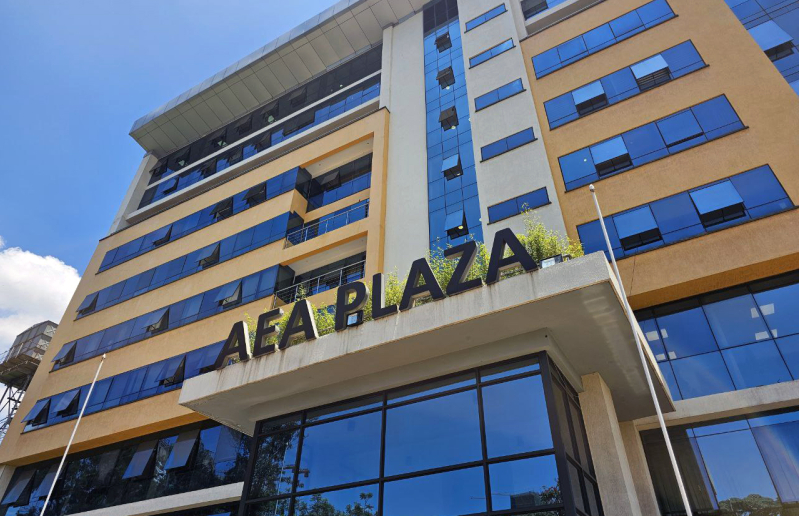
Christian Daily International sat down with Rev. Dr. Master Matlhaope, General Secretary of the Association of Evangelicals in Africa (AEA) at the AEA Plaza in Nairobi, Kenya, for a conversation about the contemporary challenges evangelicals face in Africa. The interview followed his keynote address at the Religious Liberty Partnership’s annual consultation, held in Nairobi from April 7 to 10.
Matlhaope issued an urgent call for the African Church to rethink its theology and redefine its mission in order to confront the continent’s complex issues—from poverty and extremism to poor governance and underinvestment in its youth. He argued that Africa’s problems are often exacerbated by weak states, poor leadership and the Church’s failure to engage holistically with society.
“Africa is a continent that has so many challenges,” he said. “From poverty, hunger, civil wars, terrorism, extremists to persecution. These are realities of Africa. Weak states create just an opportunity moment for extremists to thrive.”
The Church, he argued, often responds to symptoms rather than causes, which include bad governance and a failure to disciple believers holistically.
“In the north of the Democratic Republic of Congo (DRC), we had the government infrastructure basically collapsing because of insecurity. That weakness created an opportunity for extremists to take advantage and kill Christians,” he said, describing a direct correlation between state fragility and Christian persecution.
Theological blind spots and economic disengagement
However, Matlhaope also took aim at what he described as an imbalanced approach to theology in Africa—particularly among Pentecostals—who have historically emphasized the spiritual at the expense of the physical.
“In some places where we are the majority, we still face economic and legal persecution,” he said. “People of other religions come and occupy the economic space and then hold national authority. The Church becomes a victim—even though they are the majority—because we told ourselves the socioeconomic and political space is a no-go zone.”
This disengagement, he argued, stems from a flawed theological dualism.
“Our God is the God of Genesis 1, the one who created the heavens and the earth, both the spiritual and the physical,” he said. “He didn’t create them to donate them to Satan or to others. We should be custodians of the same.”
He called for a “redoing” of theology—one that equips Christians to be stewards of every aspect of creation: economic, social, environmental and political.

The Church’s prophetic role in governance
Matlhaope also criticized the Church for ignoring political injustice and nepotism, particularly when leaders appoint their own tribesmen to positions of power.
“The Church sees this and chooses to look away. What is the result? Coups d’etat,” he said. “When they see poor governance being perpetuated, the Church needs to speak against that. That’s the prophetic role of the Church.”
He warned that current discipleship models are inadequate, often focused on producing church leaders rather than well-rounded citizens.
“We are not raising Christians who are holistic in their wellbeing to impact all aspects of life. No wonder in Africa, where Christians are the majority, we still find corruption and moral decay.”
An escapist eschatology
The church’s disengagement is also tied to a flawed eschatology, he argued.
“We believe Jesus is coming very soon, and that has caused us not to plan for today,” Matlhaope said. “But Jesus might come tomorrow, next year, or in a hundred years. In the meantime, we need to plan what we’re going to eat today, tomorrow, next week.”
Without planning and investing, he warned, Christians are left economically vulnerable. He cited an example from his own country Botswana where the poultry sector was monopolized by groups requiring halal certification, leaving Christian producers at a disadvantage.
“We need to sit down and ask: Where are our children going to go to school?” he said. “In some places with majority Christians, there are no Christian schools. They’re forced to take their children to Muslim schools.”
Violence, radicalization and the Church’s silence
Matlhaope also shared harrowing stories from regions affected by terrorism, including an account from Mozambique where extremists beheaded a man, dismembered his child, and forced the mother to eat the remains.
“I asked the audience: Is this human?” he recalled. “What leads a person to that level of inhumanity?”
He said some radicalization stems from longstanding grievances that the Church has ignored.
“In some cases, it’s the absence of the Church’s active role. Communities watch as their resources are taken away to develop others. Over time, that creates rebellion, which may become informed by ideology or religion.”
He believes such tragedies could be prevented if the Church acted prophetically.
A call to reconstruct theology
The way forward, he said, lies in reconstructing theology to emphasize the full scope of the gospel—spiritual and physical.
“The Church should reinvent its theology to be holistic,” he said. “Africa is infested with poverty, there are so many orphans. That is an opportunity for the Church to demonstrate the God of the Bible who is the Father to the fatherless.”
Matlhaope emphasized the need to differentiate between peacebuilding and peacemaking. The former, he said, requires proactive engagement to prevent conflict before it starts.
“Peacemaking is extinguishing fires. Peacebuilding is building bridges,” he said. “We must call out what has potential to cause conflict and mitigate it.”
Investing in Africa’s youth or risking a time bomb
He also warned against assuming Africa’s youthful population automatically translates to a demographic dividend, as some describe it.
“You can’t call the young population a dividend without investment,” he said. “Otherwise, it’s a time bomb.”
With Africa also being one of the poorest continents, many unemployed youths become easy targets for terrorist recruiters.
“A young person with no income will easily be recruited for any dollar,” he warned.
He urged the global Church and international community to invest in Africa now—before the consequences ripple outward.
“If you don’t invest in Africa now, then you’re not investing in your children and grandchildren,” he said. “Africans will be the labor force of tomorrow. Better to partner with Africa now so we have a Christianized youth who will come to Europe or America with the Bible, not with AK-47s.”
In conclusion, Matlhaope called the present moment “a defining opportunity” for both African and global Christianity.
“This is the time to act,” he said. “The Church is already here. What’s missing is the way we do theology.”
News Source : https://www.christiandaily.com/news/head-of-association-of-evangelicals-in-africa-calls-for-rethinking-theology-to-address-extremism-poverty-and-youth-crisi
 Your post is being uploaded. Please don't close or refresh the page.
Your post is being uploaded. Please don't close or refresh the page.





